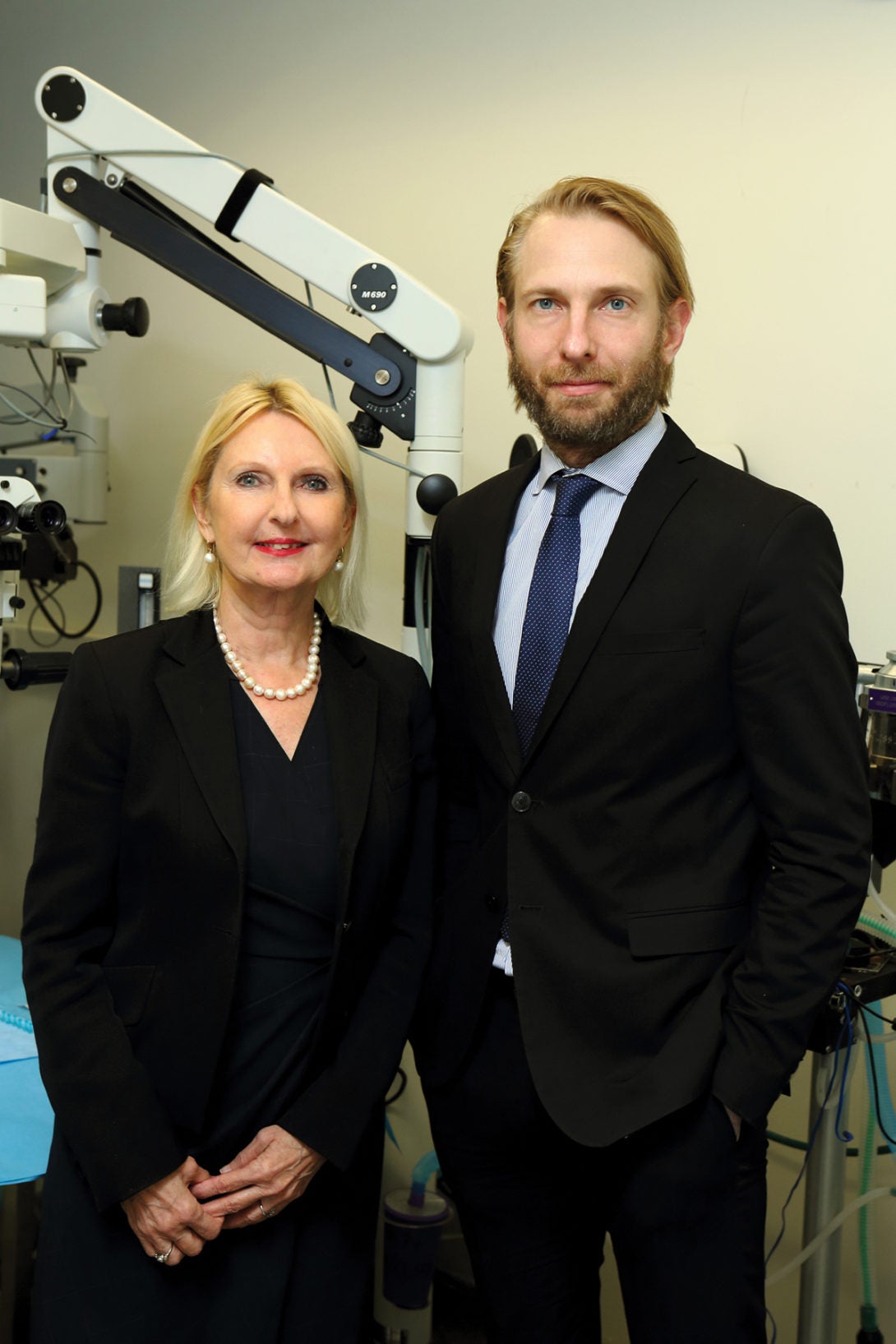UIC Researchers Launch Company to Develop ‘Chimeric Cell’ Therapy for Duchenne Muscular Dystrophy
1

Two UIC orthopedic surgeons have launched a new company that will develop a unique cell-based therapy for the treatment of a rare but deadly form of muscular dystrophy called Duchenne muscular dystrophy.
Dr. Maria Siemionow, professor of orthopedic surgery, and her son, Dr. Kris Siemionow, associate professor of orthopedic surgery in the UIC College of Medicine, are the co-founders of Dystrogen Therapeutics SA.
Duchenne muscular dystrophy is an X-linked genetic disorder characterized by progressive muscle degeneration and weakness, affecting approximately 1 in 4,000 newborn boys.
People with Duchenne muscular dystrophy don’t have the gene for dystrophin, a structural protein that helps keep muscle cells intact. Symptom onset is in early childhood, usually between ages 3 and 5. The disorder causes muscle weakness and loss of motor function and ultimately results in respiratory or cardiac failure and death. With advances in treatment, many with Duchenne muscular dystrophy live into their teens and 20s, and some into their 30s, but there currently is no cure for the disease.
Promising treatments include gene therapy and stem cell therapy, but each have their drawbacks. Gene therapy relies on delivering good copies of missing or dysfunctional genes to cells via viruses. Not only can cells become immune to viral infection, rendering the therapy ineffective, but there also is no guarantee that viruses will only infect the intended cells. Stem cell therapy, where cells that contain the dystrophin gene are implanted into a recipient, require that the recipient take immunosuppressive drugs to prevent rejection.
Dystrogen Therapeutics will advance the use of blended cells called “chimeric cells” to treat Duchenne muscular dystrophy.